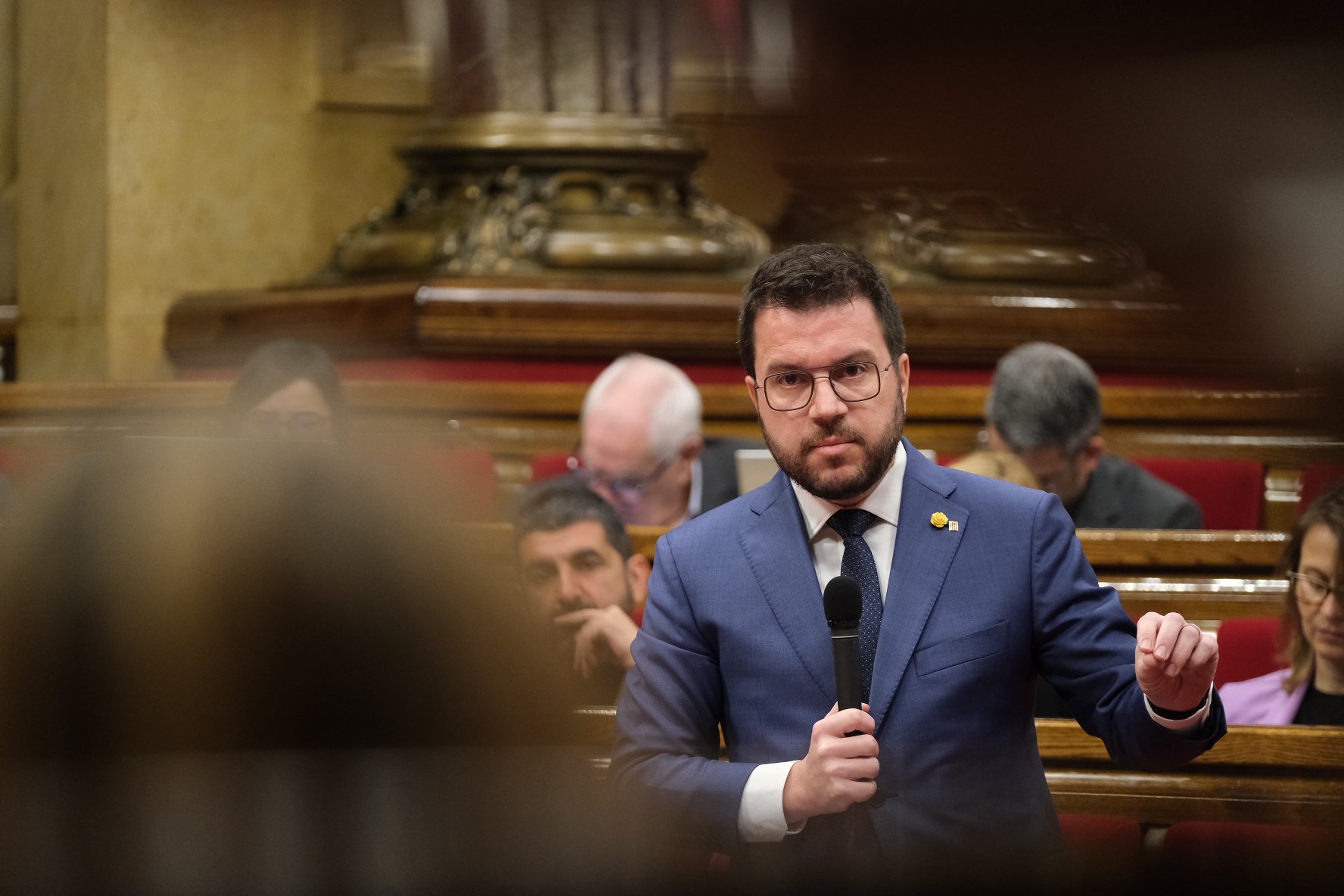Spanish defence minister Margarita Robles became the primary target of the independence movement's criticism after the speech she gave this morning in the Congress of Deputies, in which she justified espionage against politicians and activists. The Catalan president, Pere Aragonès, responded by demanding her removal from office in today's plenary session of the Catalan chamber, a further step up from the government's position until now, which had demanded accountability but without naming anyone in particular. "The minister must take responsibility, she has to do so because the CNI intelligence agency was under her responsibility. If she didn't know about it, she was incompetent, and if she did know, she was acting in violation of the most basic democratic principles," denounced Aragonès during the parliamentary question session, and on the same morning as massive espionage against the independence movement has been the protagonist in the Congress of Deputies, through questions to prime minister Sánchez and his defence minister.
"What does a state have to do when someone violates the Constitution? What does to have to do when someone declares independence or encourages public disorder?" the defence minister had asked rhetorically before the Spanish Congress in response to the CUP party's Mireia Vehí. Her words thus both implicitly assumed the existence of the espionage and gave a reason for it. They provoked reproaches from all the pro-independence groups in the Catalan chamber, from the CUP's Eulàlia Reguant, who called Robles a "guardian of the sewers of the state", to the parliamentary leaders of Junts, Albert Batet, and ERC, Josep Maria Jové.
"Today we have heard statements from a minister of defence that politically disqualify her from continuing in this position and managing the worst espionage scandal in recent decades," Aragonès asserted in response to ERC's question on the issue.
The president said that the words of Robles were insulting and "extremely serious". "Because of the ideas we stand for, [the implication is that] they have free access to enter our lives, to violate our privacy. Not only through the individual violation of rights caused, which in a democracy has to be defended against, but because it means a clear violation of the integrity of Catalonia's institutions, of its Parliament", denounced Aragonès, warning that "when MPs are spied on they cannot do their jobs correctly, when presidents are spied on they cannot defend the interests of Catalonia".
The president once again demanded that the Pedro Sánchez government get to the bottom of the issue, that it reform the official secrets act - "which is pre-constitutional and pro-Franco", he asserted; that the contracts between the CNI and the NSO Group, company responsible for the Pegasus program, be handed over to the Catalan government; and that those responsible be accountable. "The minister of defence must accept responsibility and if she does not want to do so, she should be made to do so, because there is a Spanish prime minister who showed his confidence in her," he claimed.
Illa defends Robles
Only the leader of the Catalan Socialists (PSC), Salvador Illa, came out on the side of the minister. "I know Margarita Robles and I know of her unequivocal commitment to defending the rule of law," said the Socialist leader, who denied that anyone in the Socialist government had anything to do with espionage and called on the Catalan government not to opt for a policy of obstructionism towards the Sánchez executive.
"Are we nice enough to support the government's policies and evil enough to be spied on?" replied Aragonès to Illa, after asserting that the Spanish government's political reaction was "absolutely insufficient" and that Robles had exploded any possibility of understanding.
The parliamentary session had begun with the expulsion of Ciudadanos MP Matías Alonso following protests over the reading of a statement by the committee of party spokespeople, against the mass espionage aimed at independence movement leaders and activists.
The Catalangate espionage scandal erupted on Easter Monday when The New Yorker magazine and the research centre Citizen Lab released reports on cyber-snooping on politicians, lawyers and journalists. After Spanish presidency minister, Félix Bolaños, travelled to Barcelona on Sunday to try to reduce the tension, the Catalan government made it clear yesterday that it would keep relations with the Spanish state to a minimum for as long as the Pedro Sánchez government failed to provide all the information on the case and accept its responsibilities for the violation.

